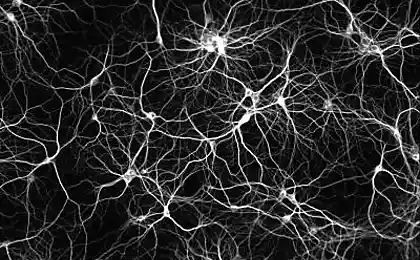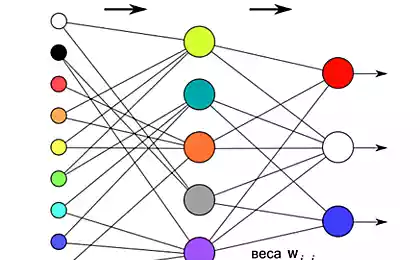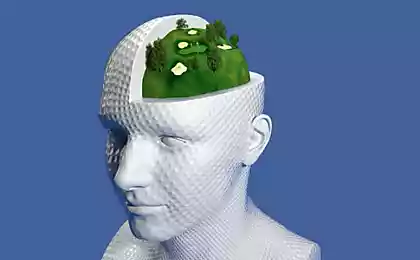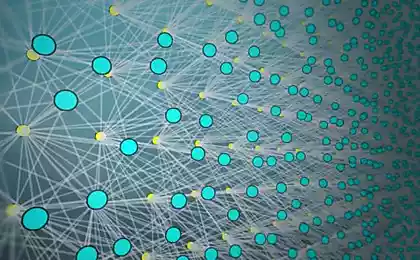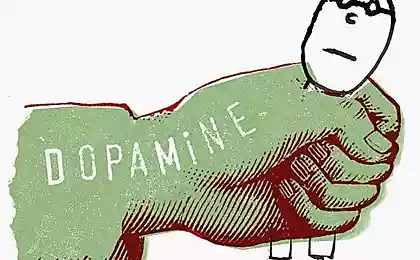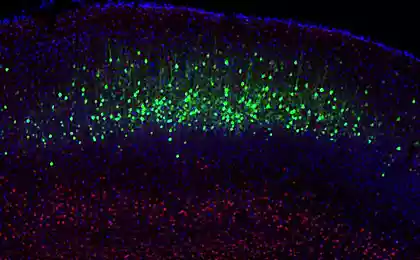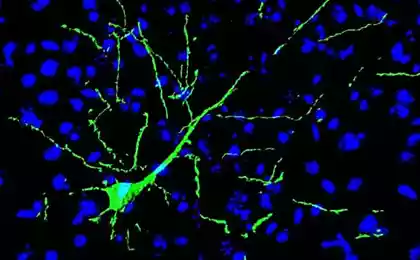570
You can grow new neurons!
Sandrine thuret: You can grow new brain cells. And I will tell you how...
” Can we, as adults grow new nerve cells? For this reason there is still some confusion, since it is a fairly new area of research. For example, talking to one of my colleagues, Robert, an oncologist, I heard: "Sandrine, this is puzzling. Some of my patients, who know they were cured of their cancer however the symptoms of depression." I replied: "from my point of view, it is quite logical. The medications you give to your patients inhibit the proliferation of cancer cells, but they also stop the production of new neurons in the brain." Then Robert looked at me like I was crazy and said: "But Sandrine, they're adults — as adults, the nerve cells no longer produced". And, to his surprise, I said, "really formed". This phenomenon, which we call neurogenesis.
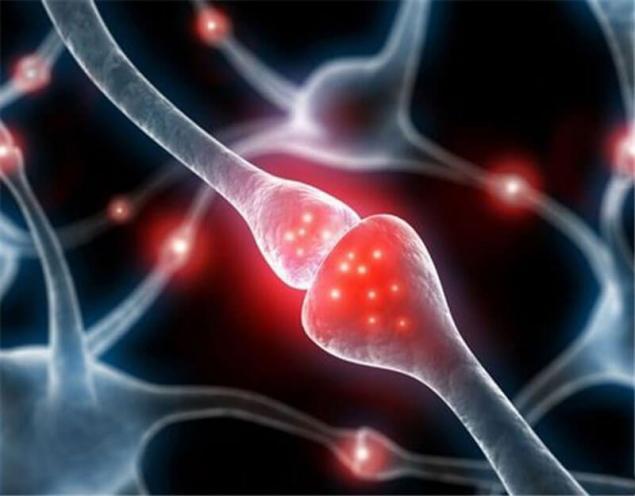
Neurogenesis
Robert is not a neuroscientist, and in medical school he was not taught what we know now: that the adult brain can generate new nerve cells. So Robert, being a professional, want to come to my lab, to better understand this issue. And I gave him a tour of one of the most exciting parts of the brain from the point of view of neurogenesis — in the hippocampus. This gray mass in the center of the brain. We have long known that this is important for learning, memory, mood and emotion.However, we recently learned that this is one of the most unique parts of the adult brain where they can form new neurons. Slice through the hippocampus and increasing the image we see is shown here in blue is a newborn neuron in adult mouse brain. As for the human brain — my colleague Jonas frisén from the Karolinska Institute has estimated that we produce 700 new neurons every day in the hippocampus. You would think that it's not much compared to the billions of neurons we have. But in 50 years all we have from birth, neurons are replaced by neurons that have already formed in the adult brain.
Why these new neurons are so important and what are their functions? First, we know that they're important for learning and memory. We experimentally proved that if we block the ability of the adult brain to generate new neurons in the hippocampus, then we block certain memory properties. This is especially new and true for spatial recognition —you, for example, targeting the city.
We still have much to learn, and the neurons are not only important for memory but also for the quality of the memory. They help the memory to work longer, they can help to distinguish between very similar memories, for example, to find a bike that you leave on the station every day in the same Parking lot, but a little in different places.
My colleague Robert is the most interesting to show our research on the relationship of neurogenesis and depression. In the study of depression in the animals we saw that we have a lower level of neurogenesis. If we take antidepressants, increase the production of these newborn neurons and reduce symptoms of depression, thereby establishing a clear link between neurogenesis and depression. Moreover, if you just to block neurogenesis, the effectiveness of antidepressants. By the time Robert agreed that his patients continue to suffer from depression even after getting rid of cancer due to the fact that cancer drugs prevent the formation of new neurons. And need some time to generate new neurons and restore their normal functioning.
So, together we came to the conclusion that I have enough evidence in order to direct our efforts towards neurogenesis, if we want to improve memory formation, mood, and even prevent, problems associated with age or stress.
So the next question is: can we control neurogenesis? The answer is Yes. We will now conduct a little test. I will present you a number of actions and conditions, and you'll tell me they reduce or increase neurogenesis. Ready? Go.
Learning? Increases? Yes. The training will increase the production of new neurons.
— And how about stress? Yes, stress reduces the production of new neurons in the hippocampus.
— Lack of sleep? Of course, this reduces neurogenesis.
Sex? Wow! (Laughter)
— Yes, you are right, it increases the production of new neurons. However, all about balance. We don't want to get into a situation where too much sex will lead to lack of sleep.
— Aging? The pace neirogenna will age to decline, but he's still going to happen.
And finally, how about running? Will give yourself to judge it.
This is one of the first studies conducted by one of my mentors, Rusty Gage of the Salk Institute showed that the environment can affect the production of new neurons. Here you can see a section of the hippocampus of the mouse, which in a cage no wheels. And the little black dots are future newborn neurons. Here a section of the hippocampus of the mouse, which in a cage wheel. You may notice a huge increase in the number of black dots representing the new neurons.
So the activity affects the neurogenesis, but that's not all. What you eat also affects the production of new neurons in the hippocampus. Before you sample diet consisting of nutrients showed a positive effect. I want to explain you some of them: neurogenesis is increased by limiting calories by 20-30%. Intermittent fasting — increasing the time between meals will increase neurogenesis. Intake of flavonoids contained in dark chocolate, and blueberries increase neurogenesis. Fatty acids omega-3 contained in oily fish, like salmon, will increase the production of new neurons. A diet rich in saturated fats, on the contrary, will have a negative impact on neurogenesis. Ethanol — alcohol consumption impairs neurogenesis. However, not all bad: it is proved that the resveratrol contained in red wine, promotes survival of new neurons. So during your next meal give preference to this "neurogenesis-sparing" drink.
And finally, let me highlight another point — it's a bit unusual.The Japanese usually pay special attention to the texture of the food. They proved that soft diet impairs neurogenesis, which is not require chewing or crunchy food.
All of these data available to us on a cellular level, was obtained as the result of experiments on animals. But this diet has been tested in humans, and we have seen that diet affects memory and mood is exactly the same as in neurogenesis. That is, the lower calorie content will improve the ability of memory, whereas a diet high in fat will increase the symptoms of depression. Conversely, fatty acids omega-3 contribute to neurogenesis and at the same time help to decrease the symptoms of depression. Therefore, we believe that the effect of diet on mental health, memory and nastraevaemaya, in fact, its role in the emergence of new neurons in the hippocampus. And it is not only important what you eat, but also the texture of the food, time of eating and amount eaten. From our side — neuroscientists interested in neurogenesis, we want to better understand the function of these new neurons and how we can affect their survival and production. We also need to find a way to protect the neurogenesis of Robert's patients. And with your hand on I leave you the responsibility for your own neurogenesis.
Thank you.
Margaret Heffernan: fantastic research, Sandrine. As I said, it changed my life now I'm eating a lot of blueberries.
Sandrine thuret: Very good.
MH: I'm really interested in the running. Do I need to run? Or enough aerobics to enrich the brain with oxygen? Can it be any kind of vigorous exercise?
CT: currently, we are unable to say with certainty, whether it is running by itself, but we think that anything that improves performance or makes the blood rushing to the brain, should influence positively.
MH: So I do not have to set the wheel in the office?
ST: of course Not.
MH: What a relief! It's wonderful. Sandrine thuret, thank you very much.
ST: Thank you, Margaret.
(Applause) “
Translation Of Yulia Kallistratova
https://embed-ssl.ted.com/talks/sandrine_thuret_you_can_grow_new_brain_cells_here_s_how.html
Source: www.quantumcristal.com
” Can we, as adults grow new nerve cells? For this reason there is still some confusion, since it is a fairly new area of research. For example, talking to one of my colleagues, Robert, an oncologist, I heard: "Sandrine, this is puzzling. Some of my patients, who know they were cured of their cancer however the symptoms of depression." I replied: "from my point of view, it is quite logical. The medications you give to your patients inhibit the proliferation of cancer cells, but they also stop the production of new neurons in the brain." Then Robert looked at me like I was crazy and said: "But Sandrine, they're adults — as adults, the nerve cells no longer produced". And, to his surprise, I said, "really formed". This phenomenon, which we call neurogenesis.

Neurogenesis
Robert is not a neuroscientist, and in medical school he was not taught what we know now: that the adult brain can generate new nerve cells. So Robert, being a professional, want to come to my lab, to better understand this issue. And I gave him a tour of one of the most exciting parts of the brain from the point of view of neurogenesis — in the hippocampus. This gray mass in the center of the brain. We have long known that this is important for learning, memory, mood and emotion.However, we recently learned that this is one of the most unique parts of the adult brain where they can form new neurons. Slice through the hippocampus and increasing the image we see is shown here in blue is a newborn neuron in adult mouse brain. As for the human brain — my colleague Jonas frisén from the Karolinska Institute has estimated that we produce 700 new neurons every day in the hippocampus. You would think that it's not much compared to the billions of neurons we have. But in 50 years all we have from birth, neurons are replaced by neurons that have already formed in the adult brain.
Why these new neurons are so important and what are their functions? First, we know that they're important for learning and memory. We experimentally proved that if we block the ability of the adult brain to generate new neurons in the hippocampus, then we block certain memory properties. This is especially new and true for spatial recognition —you, for example, targeting the city.
We still have much to learn, and the neurons are not only important for memory but also for the quality of the memory. They help the memory to work longer, they can help to distinguish between very similar memories, for example, to find a bike that you leave on the station every day in the same Parking lot, but a little in different places.
My colleague Robert is the most interesting to show our research on the relationship of neurogenesis and depression. In the study of depression in the animals we saw that we have a lower level of neurogenesis. If we take antidepressants, increase the production of these newborn neurons and reduce symptoms of depression, thereby establishing a clear link between neurogenesis and depression. Moreover, if you just to block neurogenesis, the effectiveness of antidepressants. By the time Robert agreed that his patients continue to suffer from depression even after getting rid of cancer due to the fact that cancer drugs prevent the formation of new neurons. And need some time to generate new neurons and restore their normal functioning.
So, together we came to the conclusion that I have enough evidence in order to direct our efforts towards neurogenesis, if we want to improve memory formation, mood, and even prevent, problems associated with age or stress.
So the next question is: can we control neurogenesis? The answer is Yes. We will now conduct a little test. I will present you a number of actions and conditions, and you'll tell me they reduce or increase neurogenesis. Ready? Go.
Learning? Increases? Yes. The training will increase the production of new neurons.
— And how about stress? Yes, stress reduces the production of new neurons in the hippocampus.
— Lack of sleep? Of course, this reduces neurogenesis.
Sex? Wow! (Laughter)
— Yes, you are right, it increases the production of new neurons. However, all about balance. We don't want to get into a situation where too much sex will lead to lack of sleep.
— Aging? The pace neirogenna will age to decline, but he's still going to happen.
And finally, how about running? Will give yourself to judge it.
This is one of the first studies conducted by one of my mentors, Rusty Gage of the Salk Institute showed that the environment can affect the production of new neurons. Here you can see a section of the hippocampus of the mouse, which in a cage no wheels. And the little black dots are future newborn neurons. Here a section of the hippocampus of the mouse, which in a cage wheel. You may notice a huge increase in the number of black dots representing the new neurons.
So the activity affects the neurogenesis, but that's not all. What you eat also affects the production of new neurons in the hippocampus. Before you sample diet consisting of nutrients showed a positive effect. I want to explain you some of them: neurogenesis is increased by limiting calories by 20-30%. Intermittent fasting — increasing the time between meals will increase neurogenesis. Intake of flavonoids contained in dark chocolate, and blueberries increase neurogenesis. Fatty acids omega-3 contained in oily fish, like salmon, will increase the production of new neurons. A diet rich in saturated fats, on the contrary, will have a negative impact on neurogenesis. Ethanol — alcohol consumption impairs neurogenesis. However, not all bad: it is proved that the resveratrol contained in red wine, promotes survival of new neurons. So during your next meal give preference to this "neurogenesis-sparing" drink.
And finally, let me highlight another point — it's a bit unusual.The Japanese usually pay special attention to the texture of the food. They proved that soft diet impairs neurogenesis, which is not require chewing or crunchy food.
All of these data available to us on a cellular level, was obtained as the result of experiments on animals. But this diet has been tested in humans, and we have seen that diet affects memory and mood is exactly the same as in neurogenesis. That is, the lower calorie content will improve the ability of memory, whereas a diet high in fat will increase the symptoms of depression. Conversely, fatty acids omega-3 contribute to neurogenesis and at the same time help to decrease the symptoms of depression. Therefore, we believe that the effect of diet on mental health, memory and nastraevaemaya, in fact, its role in the emergence of new neurons in the hippocampus. And it is not only important what you eat, but also the texture of the food, time of eating and amount eaten. From our side — neuroscientists interested in neurogenesis, we want to better understand the function of these new neurons and how we can affect their survival and production. We also need to find a way to protect the neurogenesis of Robert's patients. And with your hand on I leave you the responsibility for your own neurogenesis.
Thank you.
Margaret Heffernan: fantastic research, Sandrine. As I said, it changed my life now I'm eating a lot of blueberries.
Sandrine thuret: Very good.
MH: I'm really interested in the running. Do I need to run? Or enough aerobics to enrich the brain with oxygen? Can it be any kind of vigorous exercise?
CT: currently, we are unable to say with certainty, whether it is running by itself, but we think that anything that improves performance or makes the blood rushing to the brain, should influence positively.
MH: So I do not have to set the wheel in the office?
ST: of course Not.
MH: What a relief! It's wonderful. Sandrine thuret, thank you very much.
ST: Thank you, Margaret.
(Applause) “
Translation Of Yulia Kallistratova
https://embed-ssl.ted.com/talks/sandrine_thuret_you_can_grow_new_brain_cells_here_s_how.html
Source: www.quantumcristal.com
